Albanese’s Labor trapped by the deepening US-China crisis over Taiwan
The strategic reality is obvious – any reset of the damaged Australia-China relationship is now remote.
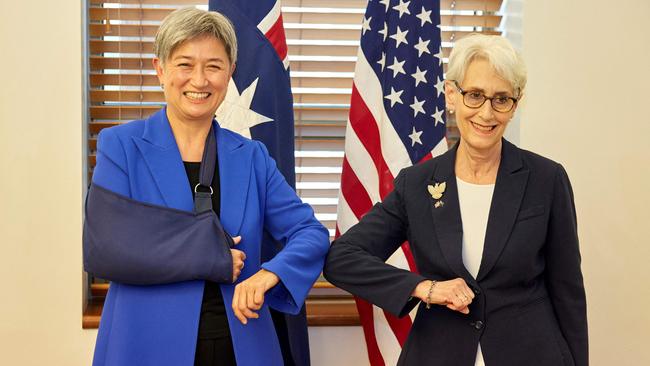
Australia’s ties with China never exist in isolation and two factors impose serious limits on the extent of any improvement – China’s demand for untenable Australian concessions and the deepening crisis over Taiwan, where Australia is a diplomatic critic of China and a strategic partner of the US.
The Albanese government has been disciplined during the crisis triggered by the visit to Taiwan by US House of Representatives Speaker Nancy Pelosi, but the new government – having arrived to improve the tone of relations with Beijing – has been subjected to patronising abuse that seemed redolent of China’s criticism of the Morrison government.
Pelosi should not have gone to Taiwan. This was the highest profile US visit since 1997. The early evidence is that China is exploiting the visit to shift the status quo and retain more intense military pressure on Taiwan – turning China’s military-led retaliation into more regular displays of military activity against the island.
This follows the reported warning China’s President Xi Jinping gave US President Joe Biden not “to play with fire” over the Pelosi visit when the two leaders had a two-hour-plus conversation. In extraordinary remarks before the visit, Biden made clear the Pentagon had opposed Pelosi’s visit saying: “The military thinks it’s not a good idea right now.”
Yet the visit went ahead. Early assessments suggest the Pelosi visit has been a strategic setback for the US. It is hardly a surprise the Pentagon – and most of the Biden administration – opposed the visit given the US struggle to defeat Russia’s invasion of Ukraine and the risk of military conflict over Taiwan at this time would constitute an extraordinary danger.
China seeks to persuade the world that reunification with Taiwan is inevitable, that force remains a live option, so don’t try to resist, this is a doomed project for opponents. But the immediate crisis comes with a downside for Beijing given its opportunistic and disproportionate military response reveals China as a power preparing for war with an alienating fallout across the region.
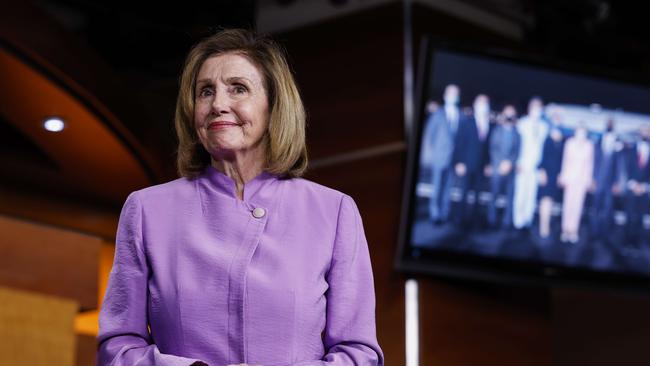
As for Australia, our response reveals our deeper psychology. Foreign Minister Penny Wong talked of the US as the “indispensable” power at such a dangerous time. Defence Minister Richard Marles said the “enormous concern” was China’s military build-up, the biggest since the second world war, was devoid of transparency or assurance to the region. Wong spoke in unison with the foreign ministers of the US and Japan to condemn China’s disproportionate military response, a reminder that Australia’s attitude to China’s threats will be integrated into our existing regional and alliance structures.
The Albanese government functions in a complex vortex. It seeks to change the tenor of bilateral ties with Beijing; it has seen success with Marles and Wong having spoken with their counterparts – breaking the Morrison government freeze – yet Labor is locked tight into the strategic realities of US-China rivalry buttressed by the domestic political certainty that making concessions under pressure from Beijing is an unacceptable choice that would damage the government.
Improving relations remains a goal – and hopefully more progress can be made – but any reset will be crowded out by strategic tensions given China affirms by word and deed its willingness to achieve reunification by war if necessary.
The National Press Club speech by Chinese ambassador Xiao Qian was a perfect mirror of these contradictions. The ambassador talked up a positive outlook based in “friendship and co-operation”, with both countries working to gradually solve their problems – yet insisted China’s military response over Taiwan was “justified”, pretended China’s trade coercion was about the sentiments of the Chinese people, raised again the Huawei decision, dismissed with almost contempt the fate of detained Australian journalist Cheng Lei and made clear that Taiwan would be reunified by force if necessary, while engaging in a ludicrous comparison between the Australian mainland and Tasmania.
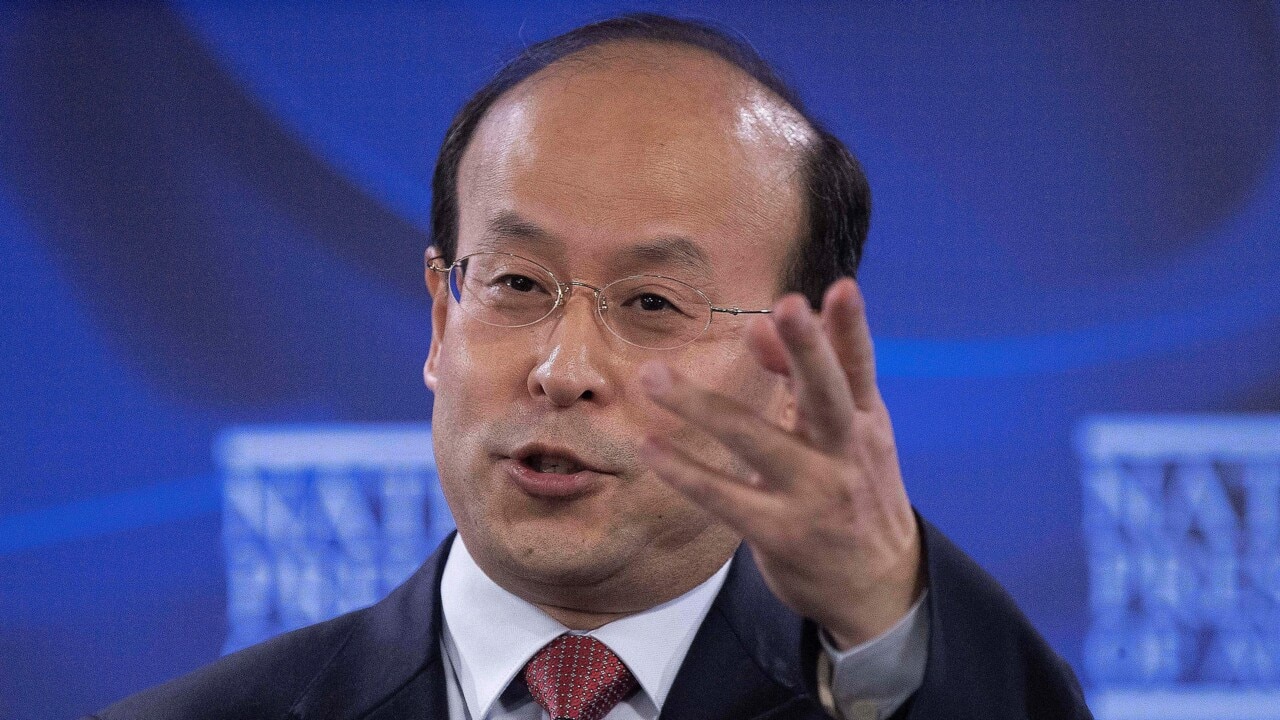
What China really wants from Australia remains to be sorted. It may prove as unrealistic about Labor as it was, in a different way, about Morrison.
Beijing statements this week about Taiwan are ominous. At midweek the Eastern Theatre Command of the People’s Liberation Army said its joint operations around Taiwan “had successfully completed various tasks” – but forces “will continue to carry out training and preparations for combat” involving “regular combat readiness patrols in the direction of the Taiwan Strait”. This follows the most substantial military activity China has mounted against Taiwan.
Quizzed about China’s exploitation of her trip, Pelosi said: “What we saw with China is that they were trying to establish sort of a new normal. And we just can’t let that happen.”
Taiwan’s Foreign Minister Joseph Wu said of Beijing’s activity: “It is conducting large-scale military exercises and missile launches as well as cyberattacks, disinformation and economic coercion in an attempt to weaken public morale in Taiwan. After the drills conclude, China may try to routinise its actions in an attempt to wreck the long-term status quo across the Taiwan Strait.”
The New York Times reported that “in interviews and public statements American and Taiwanese officials made clear they now believe China used Ms Pelosi’s visit as a pretext to step up its operations to intimidate Taiwan for months or years to come” and even accelerate its timetable to take control of Taiwan.
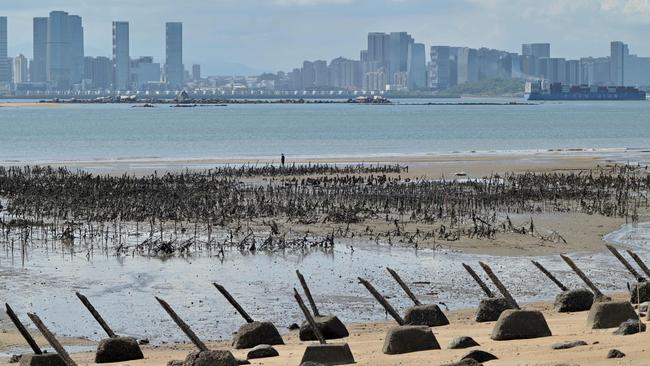
In response the message from the Biden administration was a promise to keep conducting naval and air operations with Under Secretary for Defence Policy Colin H. Kahl saying: “What we’ll do instead is to continue to fly, to sail and operate wherever international law allows us to do so and that includes in the Taiwan Strait.”
Australia has a role to play with both Beijing and Washington – as the Taiwan tensions expose the instincts of the Albanese government. At her meeting with US Deputy Secretary of State Wendy Sherman last week, Wong said: “The United States is indispensable right now”, telling Sherman the government was “very focused on the region that’s stable, prosperous and respecting sovereignty and you’re indispensable to that”.
Earlier at the East Asian Summit in Cambodia, Wong had issued a firm but balanced critique of China, saying Australia was “deeply concerned” at its missile launches and exercises that were “disproportionate and destabilising” in the Taiwan Strait – remarks she conveyed directly to China’s Foreign Minister, Wang Yi.
At the Trilateral Security Dialogue Wong combined with US Secretary of State Antony Blinken and Japanese Foreign Minister Hayashi Yoshimasa, saying they “condemned the PRC’s launch of ballistic missiles” and calling on China to immediately cease its military activities.
Wong was subjected to a furious response from Beijing accusing her of “finger-pointing”, saying Australia should remember the history of “Japan’s fascists” and that it was the US that “should be condemned”.
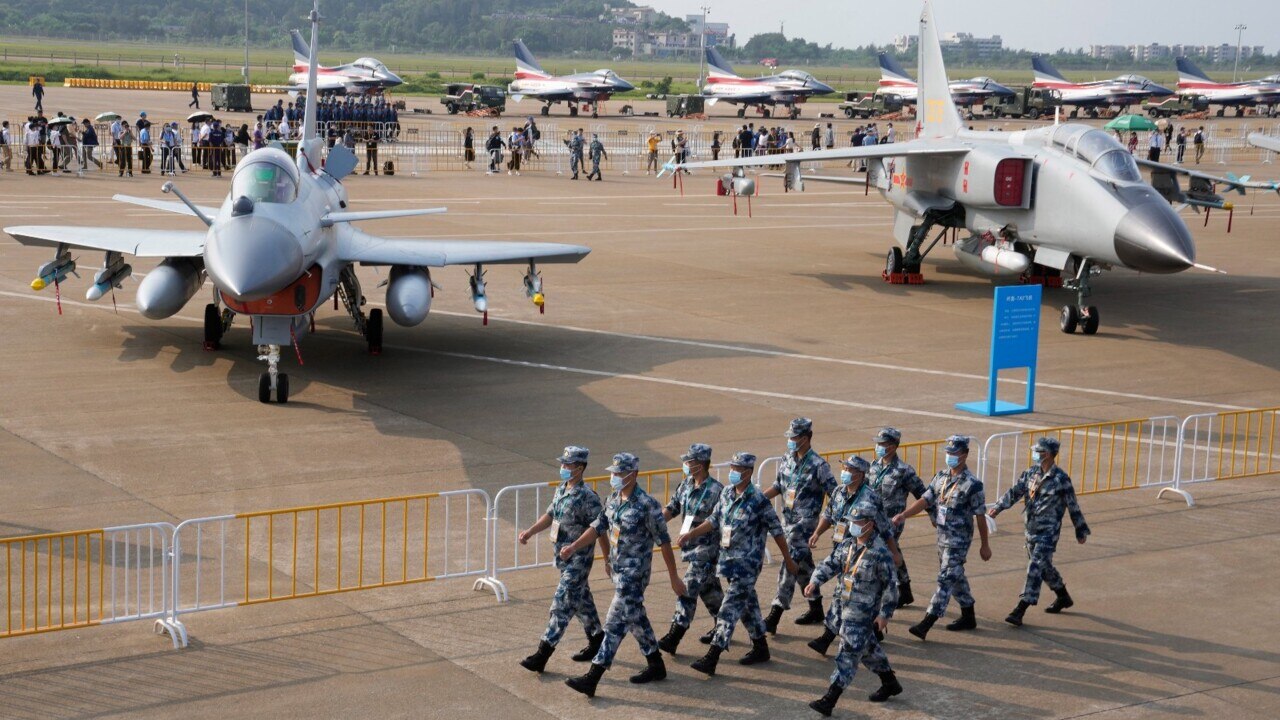
The message from Marles and Wong is Australia’s opposition to “unilateral changes to the status quo across the Taiwan Strait”. This is the crucial principle. But it applies to Washington as well as Beijing and Australia has a responsibility to advocate this principle in both capitals.
The worst mistake the US could make in response to China’s intensification of military pressure is to provoke Xi Jinping by walking away from the “one China” policy and supporting Taiwan’s independence. For Beijing, this is the ultimate red line.
Yet earlier this year former US secretary of state Mike Pompeo called on the US to recognise Taiwan as a “free and sovereign country”, while former defence secretary in the Trump administration Mark Esper said last week that after 50 years the “one China” policy had “outlived its usefulness”. Esper said with China seeking to change the status quo by coercion the US needed a “more resolute response”.
The notion of Taiwan as an independent nation is gaining traction within the Republican Party, a potentially disastrous event that highlights the risk US domestic politics poses to the region.
Harvard professor Graham Allison, author of Destined for War: Can America and China Escape Thucydides’s Trap?, said in The National Interest: “Not just Xi Jinping but the entire Chinese leadership and nation are unambiguously committed to preventing Taiwan from becoming an independent state. If forced to choose between accepting an independent Taiwan and a war that destroys Taiwan and much of China, Xi and his team will choose war.”
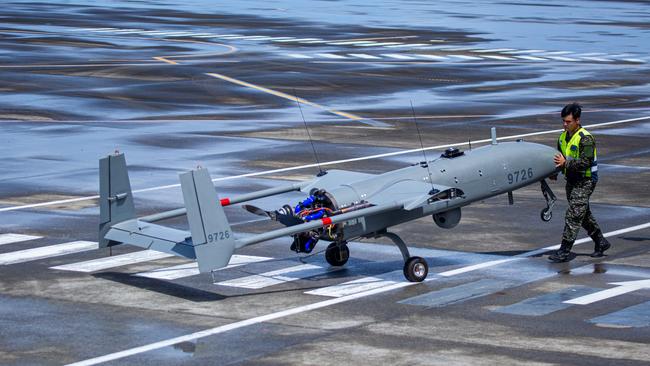
Do the Republicans grasp this? Allison fears that Taiwan independence will “likely” become a plank in the Republican Party’s platform in the 2024 presidential campaign. He points to current proposals before congress to designate Taiwan as a “major non-NATO ally” at the precise time that Xi needs to prove to his own domestic constituency that he can defy the US.
Allison warns that while “most” American politicians don’t realise this, the military balance in the Taiwan Strait has been “transformed” in the past quarter century. “The US could lose a war over Taiwan,” Allison said. “Indeed, as former deputy secretary of defence Robert Work has stated publicly, in the Pentagon’s most realistic simulations and sensitive war games, in conflicts limited to Taiwan, the score is eighteen to zero and the eighteen is not Team USA. Were the US to fight a local war over Taiwan, the president would likely face a fateful choice between losing and escalating to a wider war in which the US would have the upper hand.”
Beijing relentlessly seeks to shift the status quo on Taiwan, diplomatically and militarily. But the core stance of the Albanese government – seeking to keep both sides from upsetting the status quo – remains Australia’s best position. Our national interest is to see the temperature lowered, not increased. The situation is an immense challenge for China since there is no prospect of Taiwan agreeing to reunification while the growing mood in Beijing seems to be that a military solution will be required. Yet the costs for China of the military option will be shattering – assuming the US contests any Chinese military move, the cost will be a crippling blow to the Chinese economy that must have ramifications for the leadership, the destruction of much of Taiwan’s economy, a restoration project years and decades in the making and a transformed strategic outlook with the possibility Japan goes nuclear. And this is supposed to be in China’s interest?

In a recent issue of Global Asia, Harvard Kennedy School fellow and longstanding China analyst William H. Overholt offered some sobering comments: “China does want Taiwan ‘back’ badly, but that does not mean it wants an early bloody war that would destroy China’s economic miracle.
“Unlike Vladimir Putin, Chinese leaders are not isolated from multiple sources of advice – reality impinges. Unlike Putin, Chinese leaders are accountable to their party. Taiwan is not Ukraine. Taiwan’s defence budgets are inadequate. Conscription is a fatuous four months, compared with 18 months in South Korea and Singapore. Taipei’s military strategy is to delay a Chinese landing briefly until the US takes over. The great lesson from Vietnam and Afghanistan is that America cannot defend a government that will not wholeheartedly defend itself.”
Overholt warned the problem with the Taiwan crisis was the dream of perfect outcomes. There is no such thing. Beijing and Washington should beware. The alternative is neither a happy, prosperous, free, independent Taiwan any more than it is a hi-tech, loyal Taiwan stably incorporated into mainland China. The real alternative might resemble Mariupol East.




The strategic reality is obvious – any reset of the damaged Australia-China relationship is now remote given that our bilateral ties will be driven by the bigger and dangerous global rivalry and the risk of conflict between the US and China.